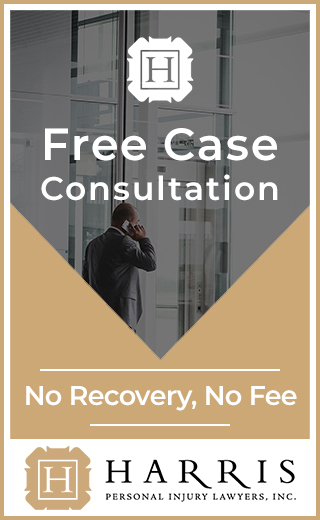San Clemente Brain Injury Attorneys
San Clemente Brain Injury Attorneys
Our brain injury lawyers in San Clemente have won cases involving a wide variety of traumatic brain injury (TBI). We work closely with neurologists, life care planners, occupational therapists, economists, and other experts whose deposition often plays a critical role in the outcome of these cases. If you or someone you love has suffered a brain injury in a preventable accident, our attorneys will help you fight for the compensation you deserve. These cases often involve substantial damages and are therefore highly contested by insurance companies. You can count on our seasoned trial lawyers to aggressively represent your best interests through every stage of the proceedings. For a free case review, contact us at 1-800-GO-HARRIS.
When Are Punitive Damages Recoverable After a Brain Injury?
All successful personal injury cases yield compensatory damages, which encompass economic and non-economic damages. Examples include medical bills, lost wages, pain and suffering, property damage, loss of consortium, lost enjoyment in life, emotional distress, childcare, domestic help, and home and vehicle modifications to accommodate new disabilities. In certain scenarios, a plaintiff may also be able to obtain punitive damages. To recover punitive damages in a tort case brought in the state of California, the plaintiff must prove that the defendant acted with malice, fraud, or oppression. These three terms are defined below:
- Malice: Malice is conduct that was done with an intent to cause injury; or conduct that a reasonable person would find contemptible, base, or vile and done with a willful or conscious disregard for the rights and safety of others. If the defendant violently attacked you and this caused your brain injury, punitive damages may be available. You may also be able to seek a punitive award if the defendant knew that his or her conduct had a high probability of causing injury yet he or she still chose to engage in that conduct. For instance, if you suffered brain trauma in a crash that was caused by a drunk driver or that was caused by a driver who fled the scene, your San Clemente brain injury attorney might advise you to seek punitive damages.
- Fraud: Fraud occurs when a defendant intentionally deceives, misrepresents, or conceals a material fact that the defendant knew about, and this fact pertained to the harm caused. It must also be shown that the defendant engaged in the fraudulent conduct in order to deprive a person of their legal or property rights, or to cause injury. For example, if you suffered a brain injury because your bicycle helmet was defective and your attorney discovers that the manufacturer covered up evidence of the defect in order to avoid a recall, punitive damages may be available.
- Oppression: Oppression is “despicable conduct” that subjects a person to unjust, cruel hardship in conscious disregard of his or her rights.
Can I Stay Active on Social Media While My Case Is Pending?
Reaching out to loved ones for support is essential when you are dealing with a serious injury. This is especially true when you’ve been diagnosed with a life-changing condition such as brain trauma. Besides relying on friends and family for emotional encouragement, you may also require assistance with domestic duties, transportation, childcare, and other needs. Social media websites offer an easy way to connect with the people closest to you under these circumstances; however, the insurance adjuster may be tracking your social media activity to find posts that can be used to dispute your claim. This is especially common in cases that involve substantial damages since the insurance company will want to limit their liability however they can. If you or someone in your network posts something that brings the severity of your injury into question, the insurance company might dispute the damages calculations. A dispute may also arise if a post shows you doing something that contradicts your medical team’s instructions—for example, attending a social event when you should be resting. And if you describe what led to the injury, your own words may be used to dispute liability. The safest way to use social media is to stay off it entirely until the conclusion of your case. If you must use these websites, be sure to update your privacy settings, decline any new connection requests, and do not post anything even if it seems unrelated to your claim.
Contact Us Today to Speak with a San Clemente Brain Injury Lawyer
The seasoned trial attorneys at Harris Personal Injury Lawyers have the knowledge, experience, and resources to win even the most complex, high-stakes brain injury cases. We use carefully vetted medical and financial experts and proven negotiation strategies to help our clients fight for the compensation they need to get their lives back. Contact Us today for a free consultation or call 1-800-GO-HARRIS.

